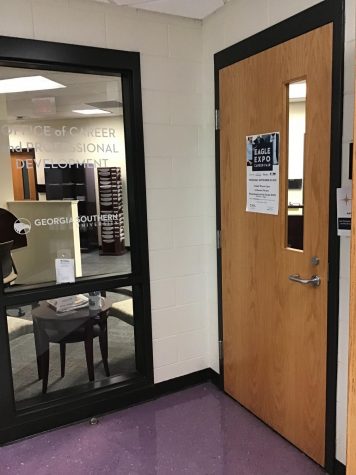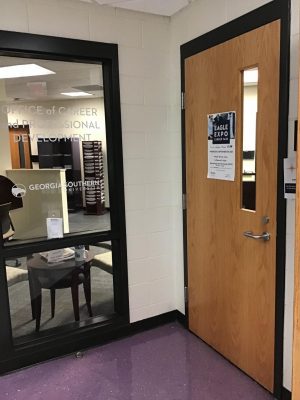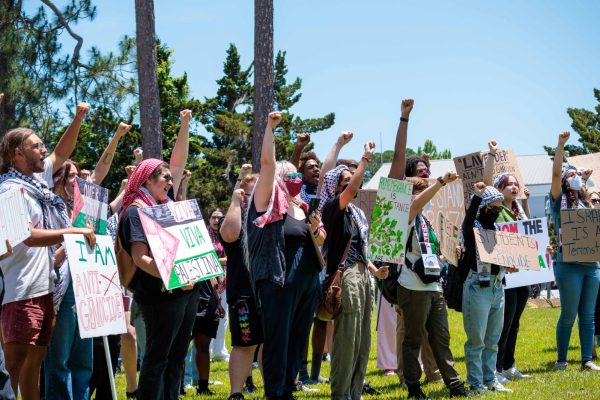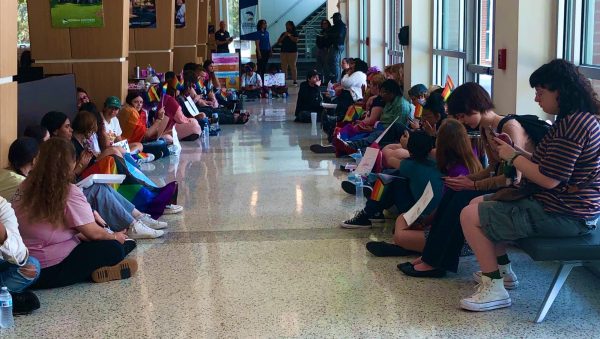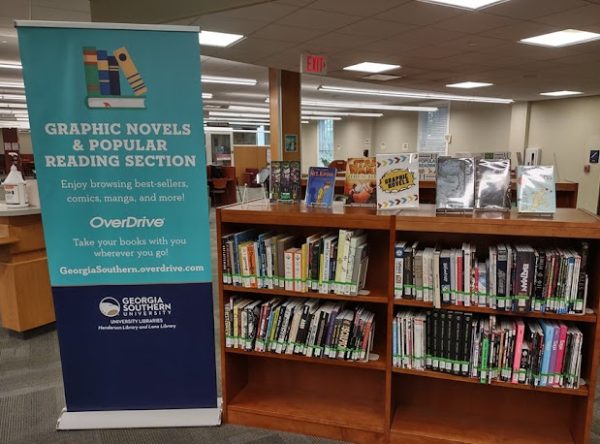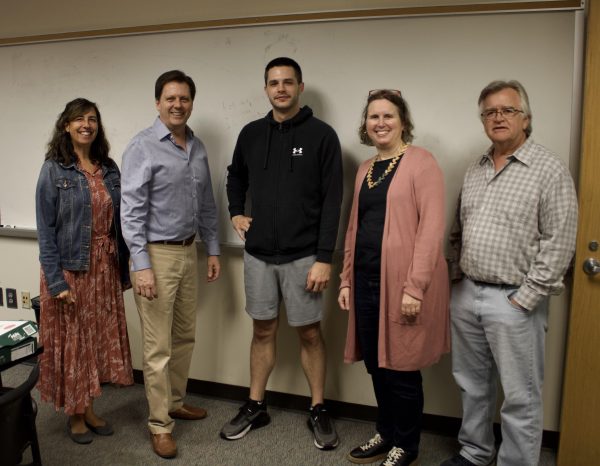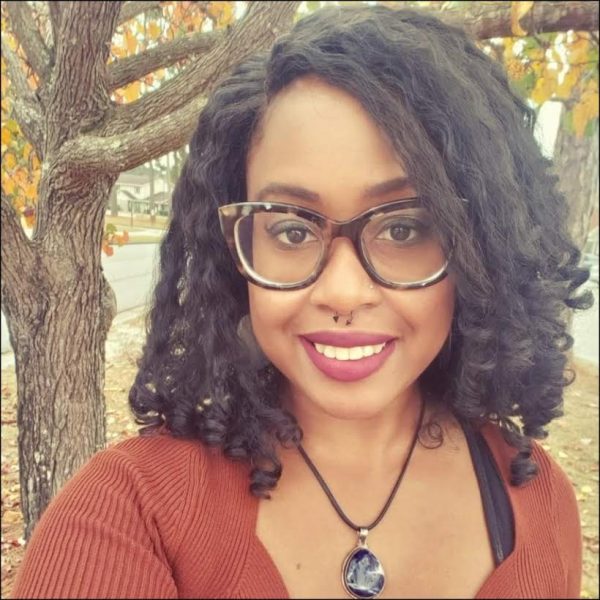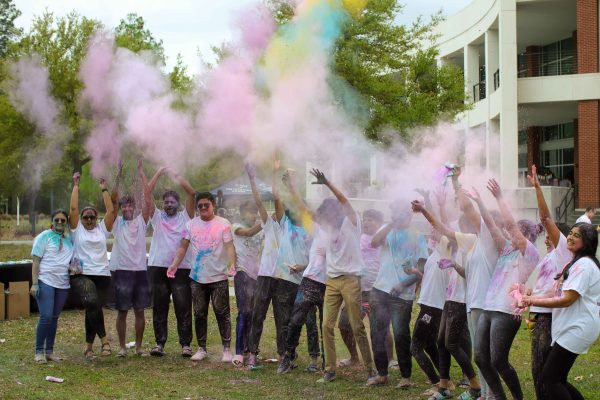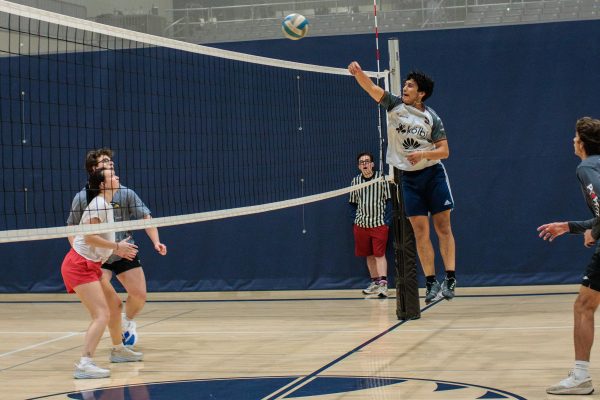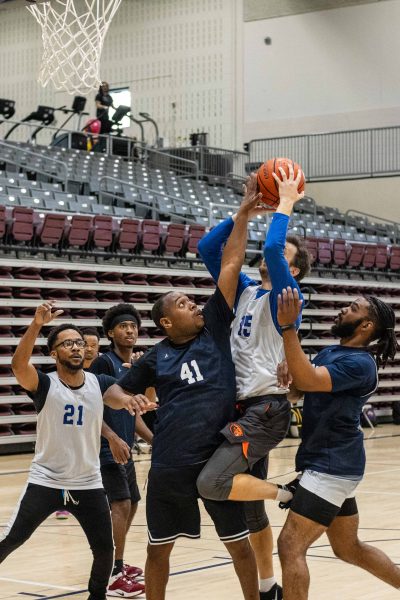High Impact Interviewing with Glenn Gibney
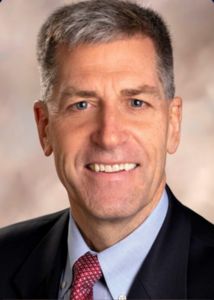
Glenn Gibney, the Director of the Office of Career and Professional, Development, courtesy of Georgia Southern
The George-Anne Inkwell conducted an interview on Nov. 8 with the Director of the Office of Career and Professional Development, Glenn Gibney. Gibney went into detail about high-impact interviewing in the job market and its importance to students.
Interviews are inevitable for students; they eventually come to every student enrolled. Students may not realize it, but interviews are just as crucial as their resume and experience at times. Therefore, it is essential to find strategies to improve interviewing and consistently engage in what Gibney describes as “high-impact interviewing.”
Gibney worked in the business field for 30 years, with 25 years of being a hiring manager before coming to Georgia Southern. He has hired many people and has been on both sides of the interview perspective. He says that in his experiences while hiring, he spent little time reviewing a candidate’s resume, which eventually led to him realizing how integral interviewing is, which in turn led him to coin the term “High Impact Interviewing.”
The Key to “Standing out from the crowd.”
“High-impact interviewing is the key to standing out from the crowd. Making an immediate impression with potential employers. I don’t think most employers expect for students to interview well. Because we don’t teach interviewing in classes, so you’ve got a great opportunity to stand out if you know the key impacts of a great interview”.
Gibney went into detail about how high-impact interviewing directly affects students.
“The job market is very competitive and will always be competitive frankly. Students will need to learn how to interview. It’s really that simple. Also, it’s important because a resume has never gotten anyone a job. So, a great resume is essential to getting you the opportunity to interview for a job. Therefore, the resume gets you an opportunity and a great interview gets you a great job.”
Because students should expect resumes not to be looked at for long, Gibney says that students should look to bring their resumes alive.
“It’s your responsibility to pull those things out during an interview, that to me as an interviewer may not have spent the time to look for. So, you must assume that the person interviewing you probably has spent one to two minutes looking at your resume. Although you may have spent about a week preparing the resume. Therefore, you need to bring out your experiences and your accomplishments that are in the resume into the interview.”
Technology’s Effects on High Impact Interviewing
Technology is pretty much unavoidable in today’s day and age. As a result, tech ends up playing an essential role in high-impact interviewing. Gibney explained that the COVID-19 pandemic has accelerated the use of technology, consequently accelerating the practice of remote interviewing. He details that five skills can help you grow with the use of technology regarding high-impact interviewing.
“The first thing is that you need a great resume, because as mentioned earlier a great resume can get you a great opportunity. The second thing is that you need to assume that the interviewer did not spend much time reviewing your resume. This makes you have to bring forth those achievements and experience alive to the interview. The third skill is to know that the best interview is a conversation. So, I say don’t be afraid to ask questions during an interview. The fourth skill is to research. I recommend to students to conduct research for prospective employers online and collecting as much knowledge as possible about that employer. The fifth skill is using the two magical words during an interview: “for example.” The reason I say this is because when you provide an answer to a question you should always provide an example. It gives you a way to demonstrate by your actions and then go back to your resume which by the way they didn’t read much of. Additionally, I also suggest for students to always follow up afterwards, essentially a thank you note.”
How to Improve Your Interviewing Skills
“My final remarks are that simply put, the best way to improve at high-impact interviewing is to practice, practice and practice again. The more you do it the better you get. Furthermore, an interview is a two-way street because you’re interviewing them as well. Because you’re deciding if you want to work for them. And ask questions not that you think are good interview questions but ask questions that will genuinely make you find out more about the company,” Gibney said.
The Office of Career Professional Development is available to all students enrolled here at Georgia Southern. The office helps students understand how work works and realize that they are responsible for their careers for a lifetime. They also assist in crafting a resume, doing a job search, creating a LinkedIn profile, finding internships, and they can even help your high-impact interview skills by doing a mock interview.
On the Armstrong Campus, you can access the office by going to Solms Hall 104; as for Statesboro, the office is in the Williams Center, room 1047. Any student can go on Handshake and request an appointment with one of the career development specialists.
The phone number for the Armstrong office is (912) 344-2563, and the email is ocpdsav@georgiasouthern.edu.
The phone number for the Statesboro office is (912) 478-5197, and the email is ocpd@georgiasouthern.edu.

An award-winning senior Communications major from Atlanta, Georgia, Jabari is passionate about bringing diverse perspectives to the news. He has been with...


